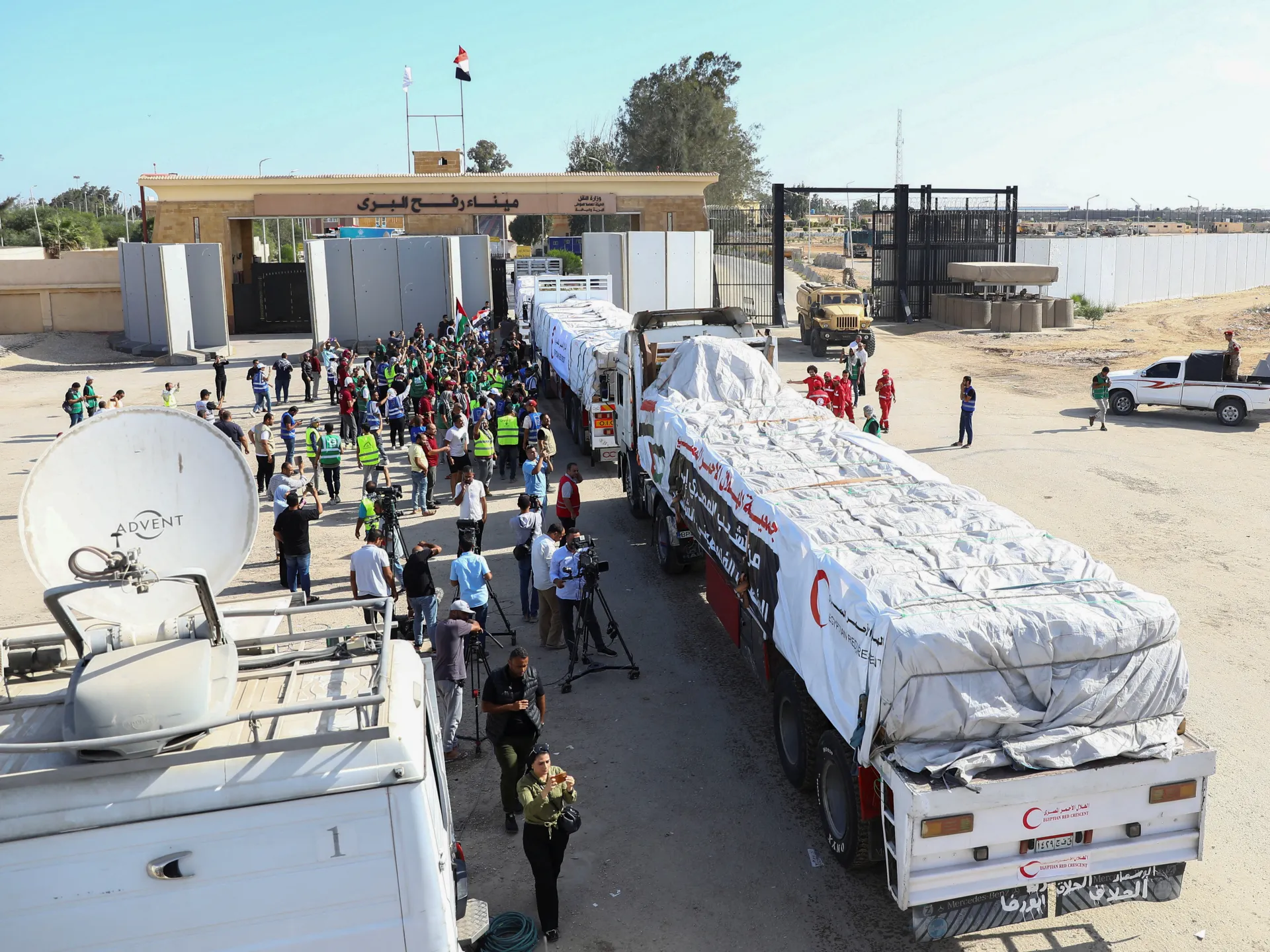
Sixty-three trucks carrying humanitarian aid entered the Gaza Strip on Wednesday via the subsidiary gate of the Rafah land port in North Sinai, the Supreme Council for Media reported.
The convoy included three trucks loaded with fuel and supplies intended to support civilians affected by ongoing hostilities.
An official source at Rafah stated that the trucks carried essential food items, including flour, baby formula, oil, sugar, cheese, canned meals, bread, and legumes, alongside medical supplies and fuel.
The aid came from the Egyptian Red Crescent, the Egyptian National Alliance, Qatar, the United Arab Emirates, and the United Nations, forming part of the 24th aid convoy to reach Gaza.
The aid entered the Strip through the Kerem Abu Salem crossing in the southeastern part of Gaza, a crucial route that has been intermittently blocked since 2 March.
Israel closed the crossings following the end of the first phase of a ceasefire, citing the failure to reach a lasting agreement to stabilise the region.
The truce was disrupted on 18 March by Israeli airstrikes, and Israeli forces subsequently re-entered areas of Gaza from which they had previously withdrawn. Restrictions have also prevented the entry of humanitarian aid, fuel, and supplies for displaced residents, as well as heavy equipment necessary for debris removal and reconstruction.
Aid deliveries resumed in May under a mechanism implemented by Israeli authorities and an American security company, although the United Nations Relief and Works Agency for Palestinian Refugees (UNRWA) criticised the process for violating international procedures.
Israel announced a “temporary truce” of ten hours daily from Sunday, suspending military operations in certain areas to facilitate humanitarian access.
Meanwhile, mediators from Egypt, Qatar, and the United States continue to push for a broader ceasefire and a potential hostage exchange agreement in Gaza.
The latest convoy underscores the ongoing challenges of delivering aid in a conflict zone and highlights the continued reliance on international coordination to provide relief to vulnerable civilians amid persistent hostilities.



